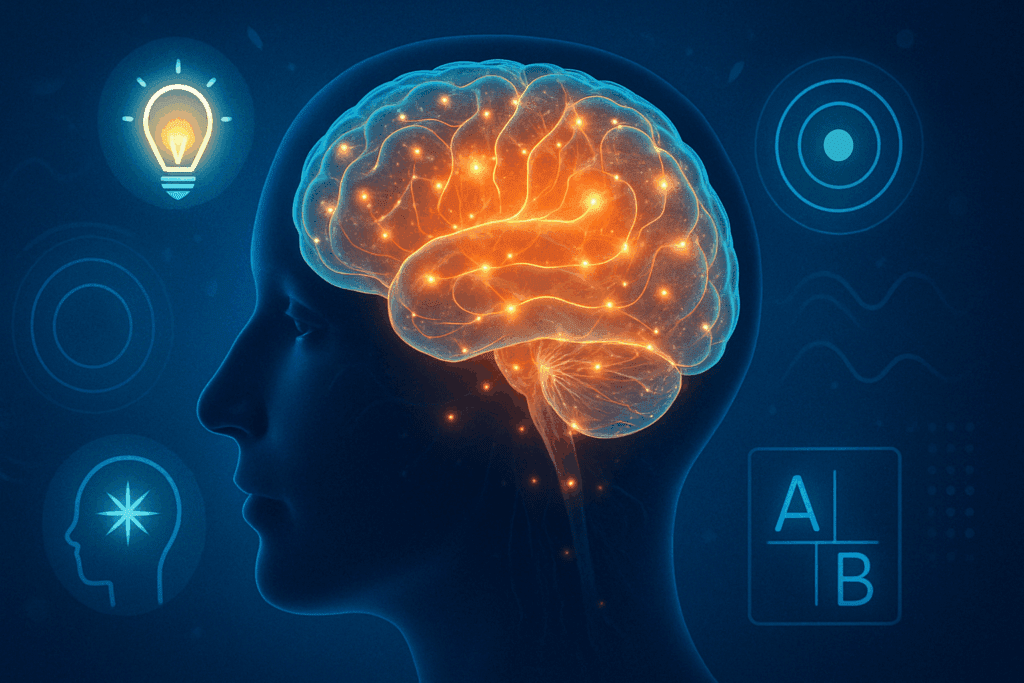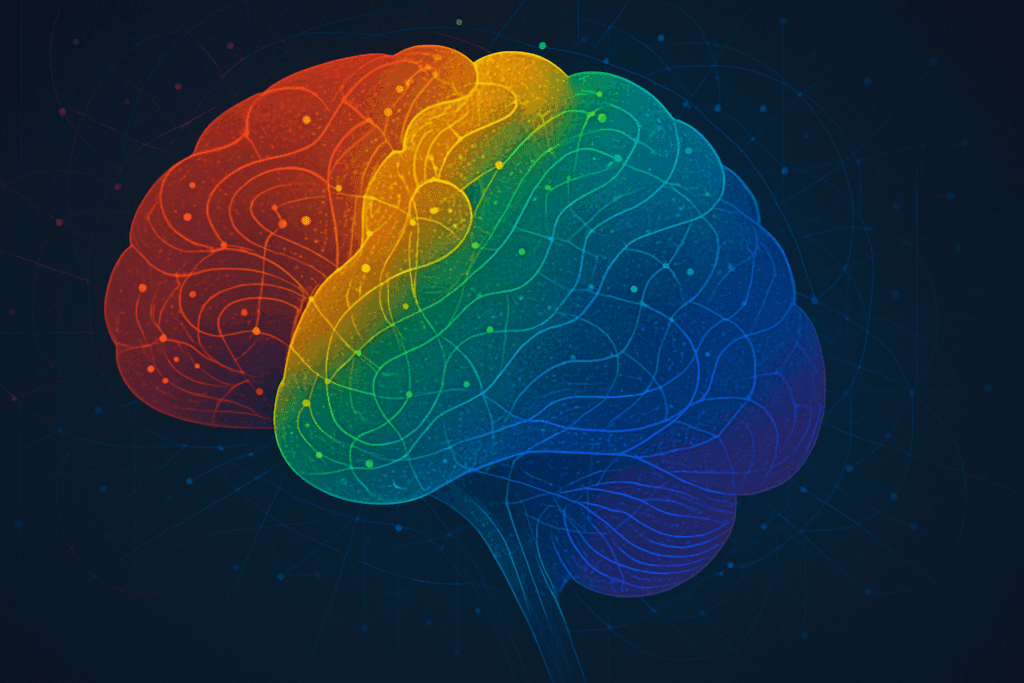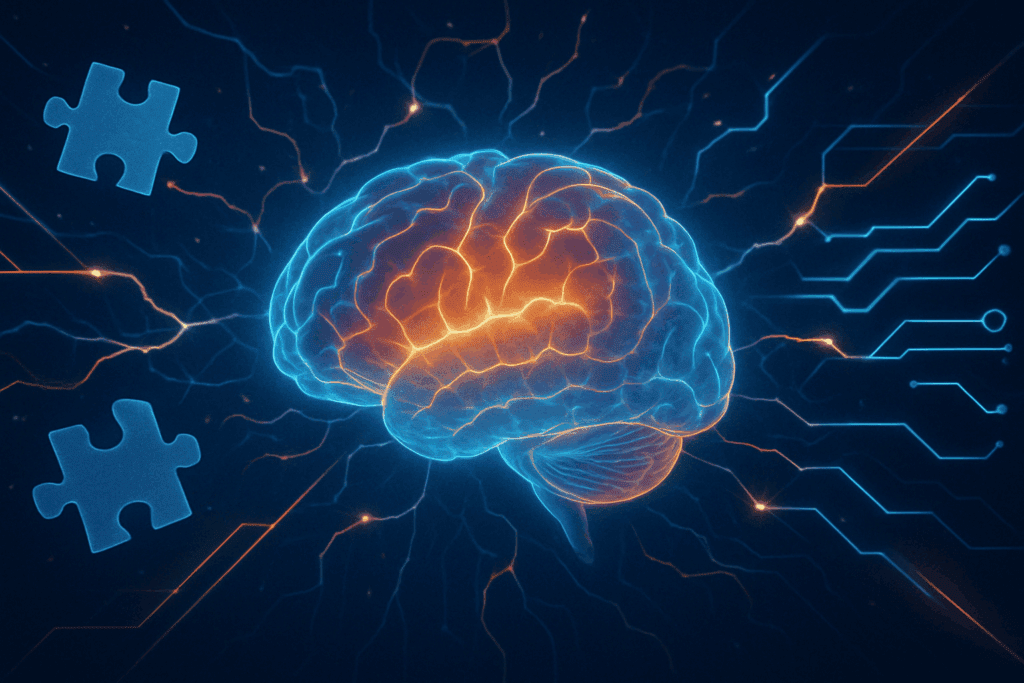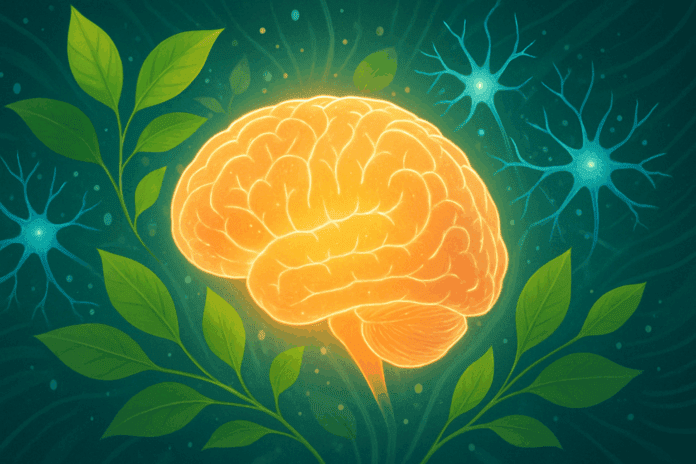In the pursuit of overall wellness, the brain often remains an underappreciated organ until its function begins to noticeably decline. Yet cognitive health forms the very foundation of our ability to think clearly, make decisions, form memories, and lead fulfilling lives. While heart health, digestive wellness, and physical fitness are frequently emphasized in popular discourse, the concept of cognitive well-being deserves equally thoughtful attention. So, what is cognitive health, and why is it critical not only in older age but throughout the lifespan? In this article, we explore the cognitive health definition, unpack the science behind mental and cognitive function, and offer expert-backed insights on preserving and enhancing cognitive capacity at any age.
You may also like: How to Prevent Dementia and Alzheimer’s Disease Naturally: Expert-Backed Strategies to Reduce Your Risk Through Lifestyle and Diet

Understanding the Meaning of Cognitive Health
To understand what is cognitive health, it is essential to begin with a precise and medically grounded cognitive health definition. Cognitive health refers to the ability of the brain to perform its core functions effectively—this includes memory, attention, executive function, language, and processing speed. It is a state in which a person can think, learn, and remember at an age-appropriate level. Unlike emotional or psychological health, which deals with mood and mental states, cognitive health is specifically concerned with the functional aspects of brain performance.
The cognitive health meaning encompasses more than just the absence of neurological disease. A person with good cognitive well-being is not only free from conditions such as dementia or stroke but is also capable of adapting to new challenges, learning efficiently, and engaging in purposeful, goal-oriented behaviors. It is this broader, more proactive understanding of cognitive health that allows clinicians and public health experts to emphasize prevention, early intervention, and lifelong support.
Cognitive Well-Being as a Cornerstone of Holistic Health
Cognitive well-being is not a standalone concept—it intersects with nearly every dimension of wellness, from physical to social to emotional. A growing body of evidence underscores the reciprocal relationship between mental and cognitive health. Poor physical health conditions such as hypertension, diabetes, or chronic inflammation have been shown to increase the risk of cognitive decline. At the same time, individuals with reduced cognitive capacity often struggle to maintain routines that support physical wellness, such as adhering to medication schedules or managing dietary needs.
Understanding cognitive well being through this integrative lens helps us recognize that fostering brain health is not a luxury but a necessity. In fact, maintaining optimal cognitive function may be the key to preserving independence and quality of life as we age. Adults with strong cognitive resilience are more likely to remain socially engaged, professionally productive, and emotionally balanced. In this sense, cognitive well-being becomes a powerful mediator of how effectively we navigate both the triumphs and trials of daily living.

Key Domains of Cognitive Function and Their Importance
Cognitive function can be broken down into several key domains, each playing a vital role in our day-to-day lives. Memory is perhaps the most well-known, as it allows us to retain and recall past experiences. However, attention—the ability to focus on relevant stimuli and filter out distractions—is equally critical, especially in a digital world filled with constant information overload. Executive function, which includes planning, decision-making, and impulse control, enables individuals to set and achieve goals, a skill foundational for both personal and professional success.
Language and communication skills are also core elements of cognitive health, allowing for meaningful social interactions and the expression of complex ideas. Processing speed, often overlooked, determines how quickly we can take in and respond to information. When examining the cognitive health meaning, it becomes clear that these domains are not isolated; they interact dynamically to influence how we learn, adapt, and thrive.
Lifespan Development and Cognitive Trajectories
Cognitive health is not static—it evolves across the lifespan. In childhood and adolescence, the brain undergoes rapid development, laying the groundwork for intellectual capabilities and emotional regulation. This period offers critical opportunities to foster cognitive resilience through education, nutrition, and safe, enriching environments. In early and mid-adulthood, cognitive abilities tend to stabilize, but they remain susceptible to lifestyle factors such as stress, sleep quality, and physical activity levels.
As we move into older adulthood, natural changes in brain structure and chemistry can lead to subtle shifts in memory and attention. However, cognitive decline is not inevitable. Research shows that individuals who engage in cognitively stimulating activities, maintain strong social ties, and prioritize cardiovascular health are more likely to retain cognitive function well into their 70s and beyond. The concept of cognitive well being throughout the lifespan encourages a shift from reactive to proactive strategies for brain health.

The Role of Lifestyle in Supporting Cognitive Health
One of the most empowering aspects of cognitive health is that it is modifiable. While certain genetic and age-related factors are beyond our control, a wide array of lifestyle behaviors have been shown to support cognitive vitality. Regular physical activity, particularly aerobic exercise, enhances blood flow to the brain and stimulates the production of neurotrophic factors—proteins that support the growth and survival of neurons. Sleep, often underestimated, is essential for memory consolidation and the clearance of metabolic waste products from the brain.
Nutrition also plays a significant role in cognitive well-being. Diets rich in omega-3 fatty acids, antioxidants, and polyphenols—such as those found in leafy greens, berries, nuts, and fatty fish—have been associated with better cognitive outcomes. Meanwhile, high sugar intake, excessive alcohol consumption, and diets high in saturated fats have been linked to impaired cognitive performance. Even simple dietary shifts can significantly influence how the brain functions and ages.

Cognitive Training and Neuroplasticity
Beyond lifestyle factors, intentional cognitive training can help strengthen mental capacities. The concept of neuroplasticity—the brain’s ability to reorganize and form new connections—offers hope for individuals seeking to enhance or recover cognitive abilities. Cognitive training programs, which may include memory exercises, problem-solving tasks, or computer-based brain games, are designed to challenge the brain in ways that promote adaptability and resilience.
While not a cure-all, such interventions can be particularly beneficial when integrated into a comprehensive wellness plan. Evidence suggests that cognitive stimulation can help delay the onset of age-related decline, improve attention span, and bolster executive functioning. Understanding the cognitive health definition through the lens of neuroplasticity reminds us that brain health is dynamic and can be shaped by our daily actions and choices.
Social Engagement and Mental Stimulation
Human beings are inherently social creatures, and our cognitive health often mirrors the quality of our social connections. Social isolation has been identified as a significant risk factor for cognitive decline, particularly among older adults. Conversely, engaging in meaningful conversations, participating in group activities, and maintaining a sense of purpose through social roles can enhance mental and cognitive vitality.
Mental stimulation through hobbies, lifelong learning, and even travel can contribute to cognitive well being. The process of acquiring new skills, navigating unfamiliar environments, or learning a new language activates various regions of the brain and fosters cognitive flexibility. These enriching experiences are not only enjoyable but also serve as protective factors against mental stagnation.

Chronic Stress, Mental Health, and Cognitive Function
Chronic stress is another powerful determinant of cognitive health. Prolonged exposure to stress hormones like cortisol can impair memory, reduce processing speed, and diminish attention span. Stress-related disorders such as anxiety and depression further complicate the relationship between mental and cognitive health. In fact, depression has been recognized as both a symptom and a risk factor for cognitive impairment.
Addressing stress through mindfulness, therapy, and stress-reducing activities such as yoga or nature exposure is crucial for safeguarding cognitive capacity. When individuals manage their emotional health effectively, they create a more favorable internal environment for cognitive function to flourish. The intersection of psychological well-being and cognitive health meaning underscores the importance of treating the brain as both a biological and emotional organ.

Cognitive Health in the Workplace and Society
In today’s high-paced, information-rich society, cognitive health has become a public health imperative. Workplaces increasingly rely on the cognitive performance of employees, valuing creativity, critical thinking, and adaptability. Organizations that invest in cognitive well-being initiatives—such as mental health support, stress management training, and opportunities for professional growth—tend to see improved employee satisfaction and productivity.
At a societal level, promoting cognitive well-being through education, equitable access to healthcare, and community-based initiatives is essential for long-term public health outcomes. Early childhood education, for example, has been shown to yield lifelong cognitive benefits. Public health campaigns that raise awareness about the cognitive health definition and its implications can lead to more informed, health-literate populations that actively engage in brain-healthy behaviors.
Early Warning Signs and When to Seek Help
Although many cognitive changes are a natural part of aging, it is important to recognize when symptoms may signal more serious conditions. Persistent forgetfulness, difficulty concentrating, trouble with language, or noticeable changes in judgment may indicate mild cognitive impairment or the early stages of dementia. These symptoms should not be ignored, especially if they interfere with daily functioning.
Early intervention can make a significant difference. Cognitive screening, neuropsychological evaluations, and imaging studies can help pinpoint the cause of symptoms and guide treatment. In some cases, cognitive decline may stem from reversible factors such as vitamin deficiencies, thyroid disorders, or medication side effects. Understanding what is cognitive health includes knowing when to seek professional assessment and how to advocate for appropriate care.
Integrating Cognitive Well-Being into Everyday Life
For many, the pursuit of cognitive health may seem abstract or difficult to prioritize amid the demands of modern life. However, small, consistent actions can yield meaningful improvements. Creating routines that support sleep hygiene, incorporating daily movement, choosing nutrient-dense foods, and staying mentally curious are all accessible ways to support brain function. Even practices as simple as engaging in reflective journaling, playing a musical instrument, or volunteering can contribute to a richer cognitive life.
It’s also beneficial to periodically evaluate one’s cognitive habits. Are you frequently multitasking in ways that fracture attention? Do you allow time for uninterrupted focus and deep thinking? Are your social interactions enriching or draining? Asking these questions invites a level of self-awareness that can lead to healthier patterns and stronger cognitive outcomes.

Why Cognitive Health Deserves Our Full Attention
While the brain has long been seen as a fixed organ, today’s research paints a far more hopeful picture. The capacity for renewal, growth, and adaptation exists across the lifespan, provided the right conditions are in place. Understanding the cognitive health meaning in this expanded context allows individuals and communities to shift their focus from fear-based narratives about decline to a more empowering vision of lifelong mental vitality.
This shift has profound implications—not only for aging populations but for students, professionals, caregivers, and leaders alike. Mental and cognitive performance underpins every aspect of our functioning, from how we relate to others to how we contribute to society. Protecting and enhancing that capacity is not a passive process; it is an active, informed pursuit that begins with education, intention, and consistent action.
Frequently Asked Questions About Cognitive Health and Well-Being
1. Can cognitive health be improved after midlife, or is decline inevitable?
Cognitive health can absolutely be improved, even after midlife. Contrary to the belief that mental decline is a guaranteed part of aging, research shows that the brain retains plasticity—the ability to form new neural connections—well into old age. Individuals who adopt intellectually stimulating habits, such as learning a new language or engaging in strategic games, often experience sustained or even improved mental and cognitive function. Additionally, physical activity, mindfulness practices, and a brain-healthy diet have been associated with long-term preservation of cognitive well being. Understanding what is cognitive health in this context means recognizing it as a lifelong, dynamic process rather than a fixed trait.
2. How does cognitive health impact decision-making in high-stress environments?
Cognitive health plays a crucial role in how we respond to stress, particularly in environments that require rapid decision-making, such as healthcare, finance, or emergency services. When the brain is functioning optimally, individuals are better able to weigh risks, consider consequences, and suppress impulsive reactions. Poor cognitive well-being, on the other hand, can compromise attention and judgment, leading to costly or unsafe decisions. The cognitive health definition in such high-stakes settings expands beyond memory and attention to include emotional regulation and problem-solving efficiency under pressure. Enhancing mental and cognitive resilience through sleep optimization, breathwork, and cognitive behavioral training can sharpen performance in stressful scenarios.
3. Are there gender differences in cognitive health outcomes or vulnerabilities?
Yes, gender differences in cognitive health have been increasingly recognized in both clinical research and practical health interventions. For instance, women are statistically more likely to develop Alzheimer’s disease, although men may experience faster rates of cognitive decline when it does occur. Hormonal factors, lifestyle patterns, and occupational exposures all contribute to these discrepancies. Cognitive health meaning should therefore be understood through a gender-informed lens, accounting for the ways that societal roles and biological variables influence brain aging. Customizing cognitive well being strategies by gender—such as hormone therapy guidance for women or cardiovascular-focused interventions for men—can enhance their effectiveness.
4. How can digital tools and apps support cognitive well-being without causing dependency or screen fatigue?
Digital tools can support cognitive health when used mindfully and in moderation. Many brain-training apps leverage principles of neuroplasticity, offering exercises that improve processing speed, working memory, and pattern recognition. However, excessive screen time can have the opposite effect, leading to mental fatigue, reduced sleep quality, and diminished real-world focus. To balance these effects, it’s vital to follow the cognitive health definition with digital hygiene practices—limiting app use to 15–30 minutes daily, turning off notifications, and taking regular screen breaks. When selected carefully, digital aids can complement broader cognitive wellbeing goals by targeting specific areas for enhancement.
5. What role does spirituality or a sense of purpose play in cognitive health?
Emerging research suggests that spirituality and having a strong sense of purpose may offer cognitive protective effects. Individuals who engage in meaningful rituals, meditation, or religious practices often exhibit lower levels of stress hormones and better memory retention in aging populations. From a neurological perspective, purpose-driven living activates brain areas associated with executive function and reward processing, which are central to maintaining cognitive health. Integrating purpose-based reflection into daily life—whether through journaling, volunteering, or community involvement—supports cognitive well being by fostering emotional stability and mental clarity. This dimension broadens the traditional cognitive health meaning to include existential and psychological enrichment.
6. Can trauma or adverse childhood experiences affect long-term cognitive health?
Yes, early life trauma has been shown to significantly influence cognitive trajectories across the lifespan. Adverse childhood experiences (ACEs) are linked to structural changes in brain regions responsible for memory, emotional regulation, and executive function. Adults with high ACE scores are more likely to experience cognitive challenges, particularly under stress. However, interventions such as trauma-informed therapy, mindfulness training, and lifestyle coaching can help mitigate these long-term effects. Understanding what is cognitive health requires acknowledging how deeply early emotional wounds can influence later mental and cognitive resilience—and the fact that healing is possible at any age with appropriate support.
7. How does the gut-brain connection relate to cognitive well-being?
The gut-brain axis represents one of the most fascinating areas in current cognitive health research. A growing body of evidence suggests that gut microbiota composition can influence neurotransmitter production, inflammation levels, and even mood—all of which are vital for cognitive well being. For example, probiotics and prebiotics may improve attention and reduce symptoms of brain fog in some individuals. The cognitive health definition is increasingly incorporating this bi-directional relationship, suggesting that a healthy diet doesn’t just benefit the body but also the mind. This area holds promise for new therapies that target the microbiome as a means of supporting mental and cognitive health.
8. How do cognitive health strategies differ for neurodivergent individuals?
Cognitive health strategies must be adapted to suit the needs of neurodivergent populations, such as individuals with ADHD, autism, or dyslexia. Traditional models of cognitive well-being often emphasize standardized approaches that may overlook the unique cognitive styles and strengths of neurodivergent people. For instance, some individuals may thrive with visual aids or structured routines, while others benefit more from sensory-friendly environments. Recognizing neurodiversity helps expand the cognitive health meaning by emphasizing inclusivity and tailored interventions. Personalized strategies grounded in self-awareness and affirming support can enhance both mental and cognitive functioning across neurodivergent experiences.
9. Can professional burnout lead to lasting damage in cognitive performance?
Chronic occupational burnout does more than diminish motivation—it can impair critical areas of cognitive functioning, including working memory, emotional regulation, and decision-making capacity. Prolonged exposure to high demands without adequate recovery can physically alter brain structures like the hippocampus and prefrontal cortex. Addressing burnout requires not just time off, but targeted strategies such as cognitive rest, psychological counseling, and boundary-setting practices. Understanding what is cognitive health in professional contexts includes evaluating workload sustainability and emotional labor. Prevention strategies embedded in workplace culture can safeguard long-term cognitive well-being and professional longevity.
10. What innovations are on the horizon for cognitive health enhancement?
Advancements in neuroscience and digital technology are opening up exciting frontiers for enhancing cognitive well being. Wearable neurofeedback devices, AI-guided meditation tools, and virtual reality cognitive training platforms are beginning to redefine the cognitive health definition in practical terms. In parallel, precision medicine approaches using genetic profiling and biomarker analysis aim to personalize interventions for optimal brain aging. These tools promise to make cognitive support more accessible, adaptive, and engaging. As these innovations evolve, so too does our understanding of what is cognitive health—an evolving, interdisciplinary field that merges biology, technology, psychology, and lifestyle design.
Conclusion: Embracing Cognitive Well-Being for a Sharper Mind and Healthier Future
Cognitive health is more than a medical concept; it is the gateway to living with clarity, purpose, and joy. When we understand what is cognitive health in its fullest dimension—when we see it not merely as the absence of illness but as the vibrant presence of mental agility, memory, focus, and creativity—we begin to treat it with the seriousness it deserves. The cognitive health meaning thus becomes synonymous with human potential: how we learn, how we connect, and how we flourish.
Integrating strategies to support cognitive well being doesn’t require radical life changes. Instead, it asks for consistent, intentional choices rooted in self-awareness and guided by science. From nutrition and exercise to sleep and social connection, every healthy habit is a quiet investment in our brain’s future. With proper attention, the domains of mental and cognitive performance can remain strong, resilient, and deeply rewarding.
As we move forward individually and collectively, prioritizing cognitive well-being will shape not only how we age but how we live. And in that commitment lies the potential for sharper minds, fuller lives, and a society empowered by wisdom, clarity, and compassion.
Was this article helpful? Don’t let it stop with you. Share it right now with someone who needs to see it—whether it’s a friend, a colleague, or your whole network. And if staying ahead on this topic matters to you, subscribe to this publication for the most up-to-date information. You’ll get the latest insights delivered straight to you—no searching, no missing out.
Further Reading:
Cognitive Health and Older Adults
6 simple steps to keep your mind sharp at any age
Why is Cognitive Health Important
Disclaimer
The information contained in this article is provided for general informational purposes only and is not intended to serve as medical, legal, or professional advice. While Health11News strives to present accurate, up-to-date, and reliable content, no warranty or guarantee, expressed or implied, is made regarding the completeness, accuracy, or adequacy of the information provided. Readers are strongly advised to seek the guidance of a qualified healthcare provider or other relevant professionals before acting on any information contained in this article. Health11News, its authors, editors, and contributors expressly disclaim any liability for any damages, losses, or consequences arising directly or indirectly from the use, interpretation, or reliance on any information presented herein. The views and opinions expressed in this article are those of the author(s) and do not necessarily reflect the official policies or positions of Health11News.


